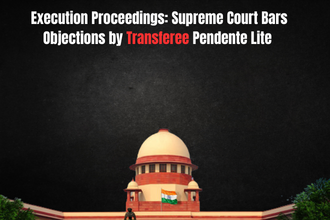On September 13, 2025, the Supreme Court of India issued a landmark directive in Anna Waman Bhalerao v. State of Maharashtra, mandating that regular and anticipatory bail applications must be decided expeditiously, preferably within two months of filing. The ruling, delivered by a Bench of Justices JB Pardiwala and R Mahadevan, underscores the constitutional primacy of personal liberty and aims to prevent indefinite pendency of bail matters in trial courts and High Courts.
This decision addresses a systemic issue: delays in bail adjudication that leave accused persons in prolonged uncertainty, undermining both the Code of Criminal Procedure (CrPC) and the constitutional ethos of Articles 14 and 21.
Background of the Case
The Supreme Court was hearing appeals filed by two retired revenue officers whose anticipatory bail pleas had remained pending before the Bombay High Court since 2019. During this prolonged pendency, interim protection was granted, but the High Court ultimately dismissed the applications in July 2025, more than six years later.
This extraordinary delay prompted the Supreme Court to not only decide on the individual case but also lay down systemic directions to prevent recurrence.
Key Observations by the Court
- Expeditious Decision-Making
The Court held that bail and anticipatory bail applications should not be relegated to a state of “indefinite pendency.” “Prolonged delay in disposal not only frustrates the object of CrPC but also amounts to a denial of justice, contrary to the constitutional ethos reflected in Articles 14 and 21.” - Bail as a Liberty-Centric Remedy
The Court reiterated that the grant or refusal of bail is ordinarily a straightforward exercise based on facts. Procrastination is unjustified, as it places undue burden and anxiety on the applicant. “There is no justification for deferring decision-making and allowing a sword of Damocles to hang over the applicant’s head.” - Balancing Liberty with Investigative Needs
While underscoring liberty, the Court acknowledged that custodial interrogation may sometimes be essential, especially in financial or documentary evidence-driven cases.
Directions Issued by the Supreme Court
The Bench laid down a set of binding directions to ensure consistency and accountability:
a) Timelines for Disposal
- Bail and anticipatory bail applications should be disposed of within two months of filing.
- Exceptions may apply only when the delay is attributable to the parties themselves.
b) Administrative Mechanisms by High Courts
- High Courts must issue directions to subordinate courts to prioritize bail matters.
- Adjournments in bail hearings should be strictly avoided.
c) Role of Investigating Agencies
- Agencies must conclude investigations promptly to prevent prejudice to either side.
- Undue delay cannot justify keeping bail applications pending.
d) Avoiding Accumulation of Bail Matters
- High Courts, being the highest constitutional fora in the States, must devise procedural frameworks to avoid pendency of bail applications.
- Liberty cannot be left in abeyance due to docket congestion.
Application of Principles to the Present Case
While emphasizing the need for speedy bail decisions, the Court upheld the Bombay High Court’s decision to deny anticipatory bail to the two appellants. It observed:
- Custodial interrogation was necessary to trace the chain of financial transactions.
- Despite six years of interim protection, the appellants failed to fully cooperate with the investigation.
- Delay alone does not entitle an accused to relief if the merits demand otherwise.
Thus, the Court balanced the principle of liberty with the interests of justice in effective investigation.
Broader Legal and Social Significance
- Strengthening Article 21 Protections
This ruling directly reinforces the right to life and personal liberty under Article 21 by ensuring that bail hearings are not indefinitely delayed. - Judicial Accountability and Efficiency
The Court has placed responsibility on High Courts to devise mechanisms that prevent pendency, signaling the need for better case management. - Addressing Docket Explosion
While recognizing heavy caseloads, the Court clarified that matters of personal liberty must receive top priority over routine matters. - Consistency in Bail Jurisprudence
This decision aligns with the Court’s long-standing jurisprudence that “bail is the rule, jail is the exception,” ensuring that liberty is not compromised by systemic inefficiency.
Conclusion
The Supreme Court’s ruling in Anna Waman Bhalerao v. State of Maharashtra represents a significant reaffirmation of constitutional liberty. By directing courts to dispose of bail applications within two months, the Court has taken a step towards harmonizing judicial efficiency with individual rights.
However, the ruling also underscores that timely bail adjudication does not mean automatic grant of bail. Each application must be decided on its merits, balancing the rights of the accused with the needs of investigation.
This decision is expected to influence judicial practices across High Courts and subordinate courts, ensuring that personal liberty is not left hostage to systemic delays.
Also Read


